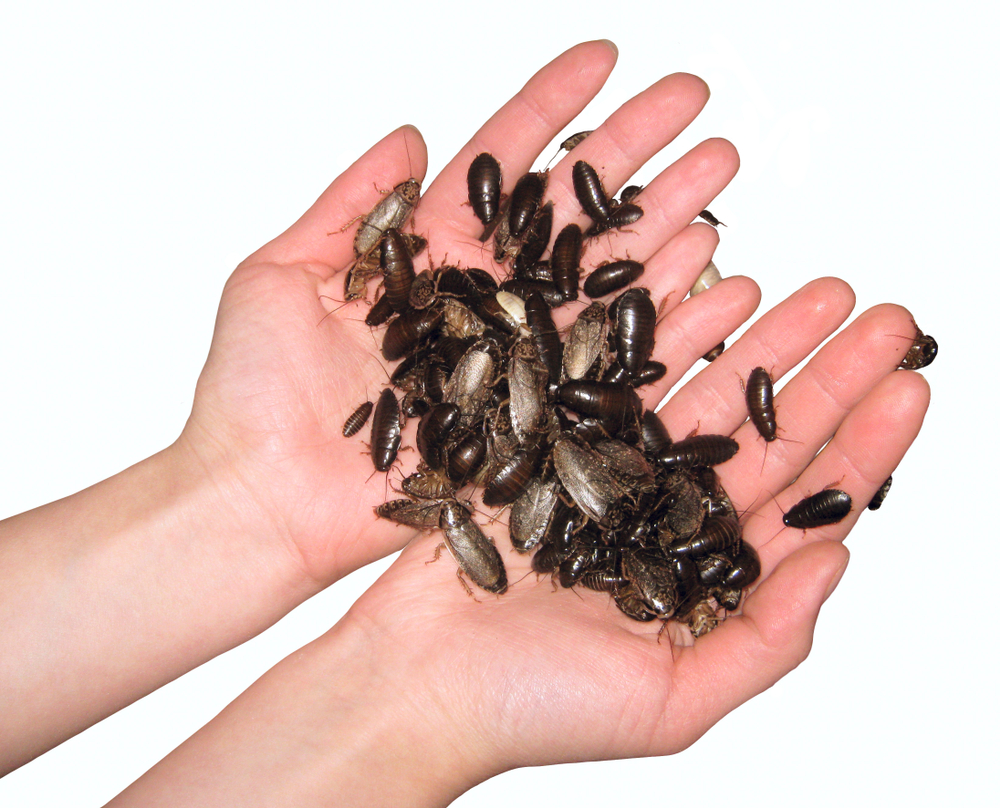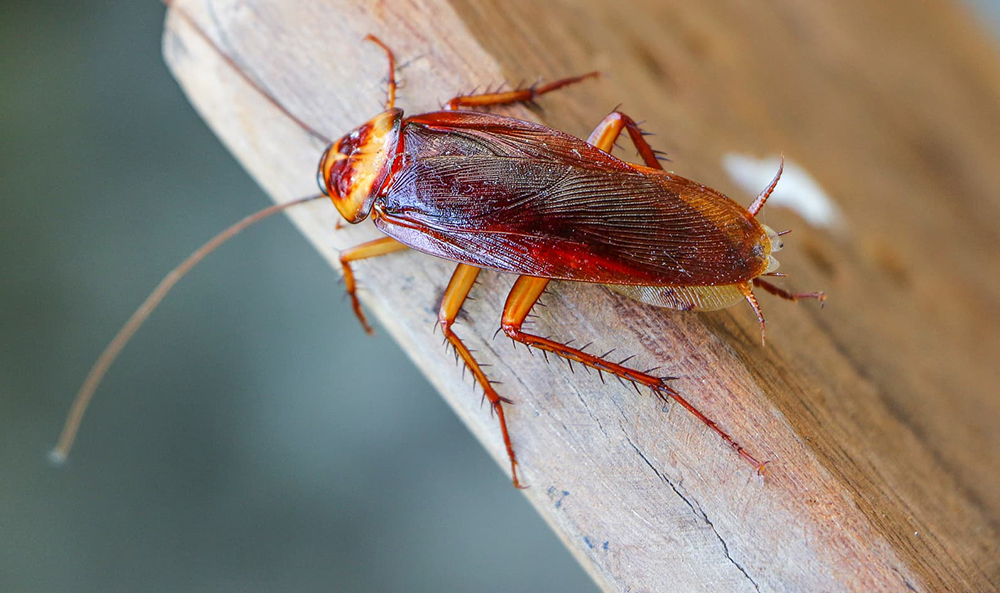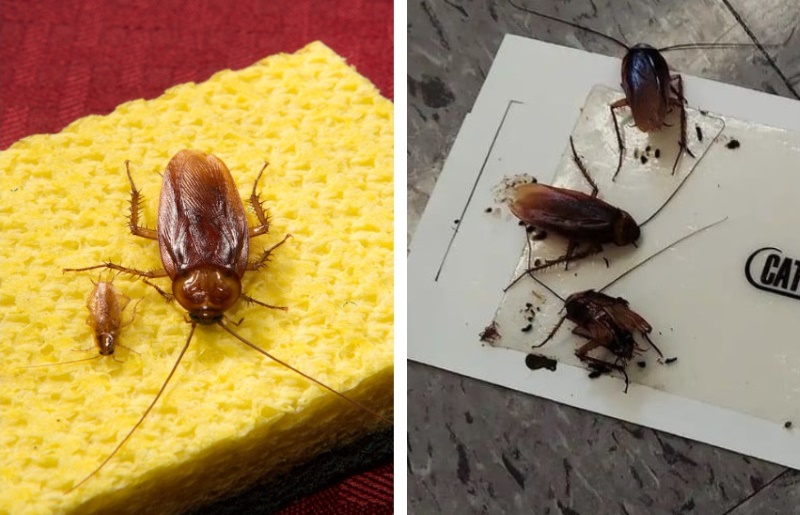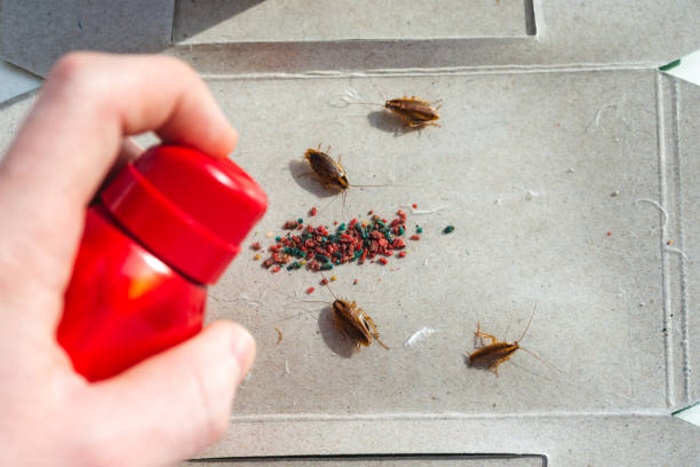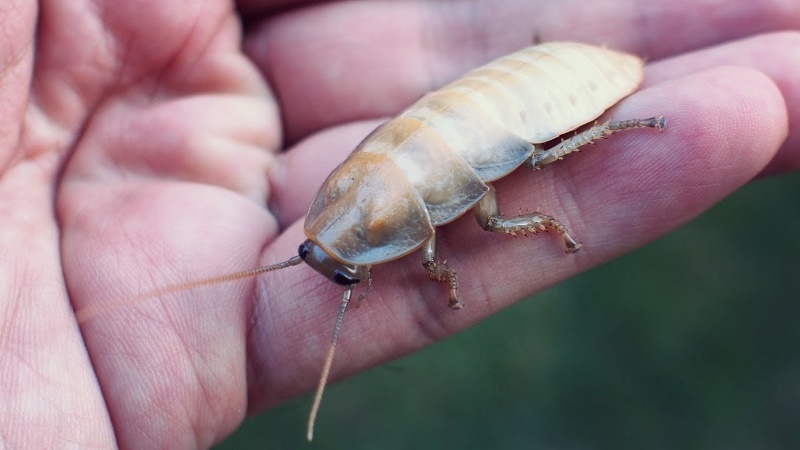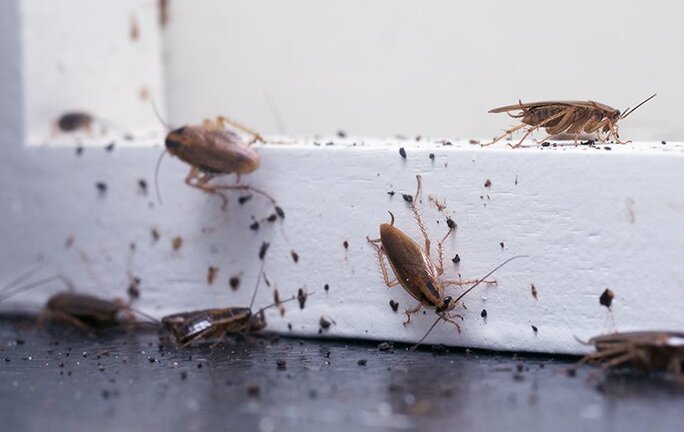

Cockroaches might be some of the least-loved bugs on the planet! Sure, most people find them ugly and unpleasant, but something that few people know is the answer to the question: do cockroaches bite? This article will answer your questions, including “What does a cockroach bite look like on a human?”, “Can a cockroach bite make you sick?”, “What to do for a cockroach bite?” and more.
We’ll also have a look at different kinds of cockroaches and the differences in their bites, effects, and treatments. Throughout the article, we include links to important resources with more information on the subject, as well as examples of the best roach-killer products on the market, including the best roach bombs and foggers.
This article will provide a comprehensive introduction to cockroach bites, their treatment, issues they can cause, and what to do to help you find the best solutions!
According to the Centers for Disease Control, cockroaches and other pests are known to cause issues for human health through the transference of disease and other issues. What we generally call roach bites are usually long scratches from their heavy leg spines. However, roaches sometimes bite humans in rare cases. Healthline quotes information from EPA and WHO explaining that roaches can cause illnesses, especially in the intestines.
This sounds scary, but there’s a risk that can be mitigated so long as you know what to look for and how to react!
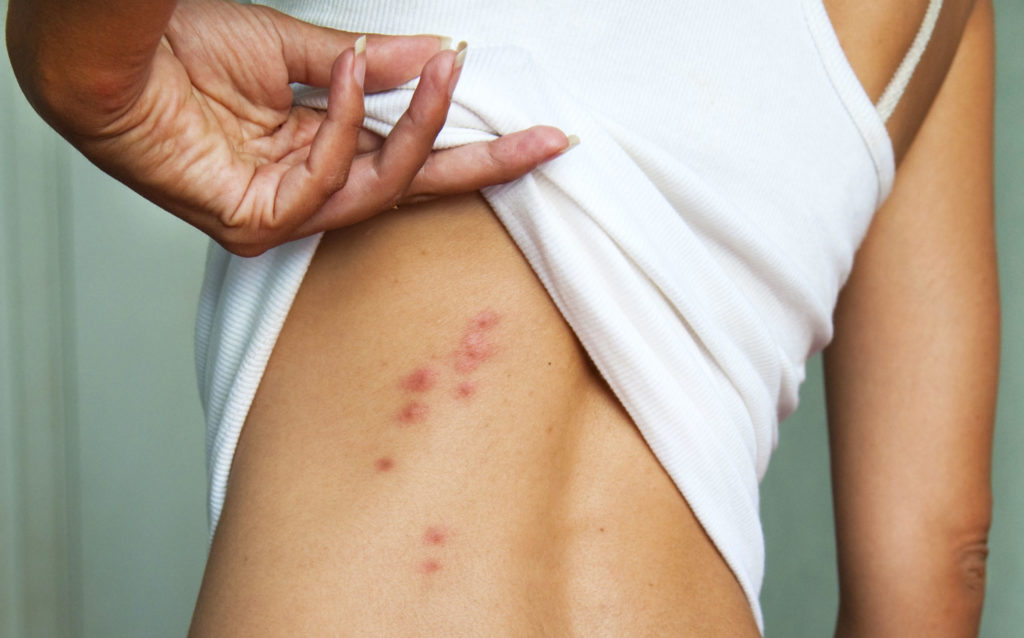
If you’re wondering what a cockroach bite looks like on a human, the first thing you should know is that it isn’t especially unique in appearance. In fact, they often look similar to bites from bedbugs and other similar critters, creating annoying itchy red dots. These dots are around 2 millimeters wide, though they can be smaller or bigger depending.
Itchy red bites are annoying but not usually a huge concern. However, suppose the bite becomes infected due to scratching the itch and exposing the wound. In that case, it can fill with pus, become inflamed, and swell up into a huge blister of several inches or more—obviously something to avoid!
For a good reason, German cockroaches (Blattella germanica) are probably the ones people worry about most. In Florida, where they run rampant, they are known for causing allergic responses with their bites that can be severe and even damage humans psychologically when they infect a home! Do German cockroaches bite? Yes—probably more than others! So what does a German cockroach bite look like? These bites are likely to cause lesions and minor infections. They often get swollen and are very itchy.
This is a severe allergic reaction to insect bites. As they are so prevalent, they carry a high risk of insect bite sensitivity, which a medical professional must treat in serious cases. Symptoms can vary from annoying to dangerous, so be sure to keep track of your body’s reactions in case of any insect bite.
The American cockroach (Periplaneta americana) is a long-lived and large species that is capable of flight. They’re common in cities but can be found in all sorts of places. Since they’re often found in the walls and pipes of hospitals, they’re a specific risk to health care personnel when spreading bacteria through bites.
Do American cockroaches bite? Yes, but fortunately, their bites are very rare, especially compared to German cockroaches. When they do happen, it’s very rare for them to require medical attention except in serious cases of allergy or infection.
Unfortunately, yes—roaches usually bite at night when people are asleep, which is another reason they’re often mistaken for bedbug bites. They’re rarely seen during the day as they’re timid around (awake!) humans. The good news is that if they do bite, it’s much easier to identify the bite if you happen to wake up and spot them!
Food is one of the two main reasons that cockroaches bite, so they target these areas. Most commonly, a cockroach of any kind will bite in a specific location—usually the face, mouth, hands, or fingers. The most common theory on why this is is that food residue tends to gather in these areas.
Cockroach bites are rare, but all roaches—baby roaches, nymphs, and adults—are capable of biting. There are a few reasons why they bite. Usually, it’s because of a population boom where food is scarce, but they can also bite if they feel threatened.
As well as food remnants, there have been rare cases reported where roaches feast on dead human skin, such as from the lips, scalp, or feet. This is very uncommon. Most often, cockroaches leave living humans alone and only seek out corpses when food is scarce.
The symptoms of cockroach bites are generally minor; red, swollen itchy bites that can last a few days as raised bumps. However, allergic reactions can cause more serious reactions, including:
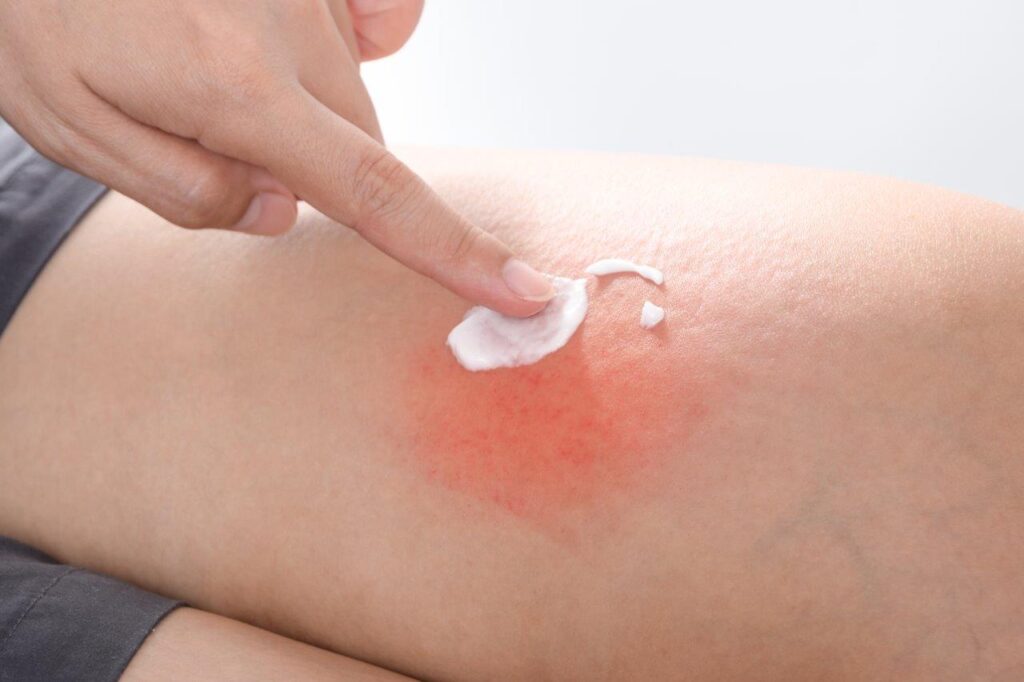
Medical attention is unnecessary for a normal cockroach bite, and damage can be treated at home. As with any insect bite, cleaning the area with soap and water is essential. This is especially important for cockroaches, as they’re known to be unhygienic creatures! You also may want to consider an antiseptic spray or witch hazel.
Several home remedies help soothe the itching of a cockroach bite, which is important as scratching the bite will make it worse and more exposed to infection. Applying lemon juice, aloe vera, and cold tea bags is known to be effective. Ice can also relieve itchiness.
There are also over-the-counter creams and medicines. You should consult your pharmacist or doctor before applying medication or taking antihistamines that you have not taken in the past or that you are unsure of, especially for new bites.
In cases of infection or a severe ongoing reaction, it’s very important to seek professional medical attention as soon as possible
Of course, the best treatment is avoidance, which means getting rid of the cockroaches before they bite at all!
Yes—cockroaches are known to carry a wide variety of bacteria that can cause health problems in humans, especially intestinal diseases. One extreme disease which has been recorded as carried by roaches is typhoid fever.
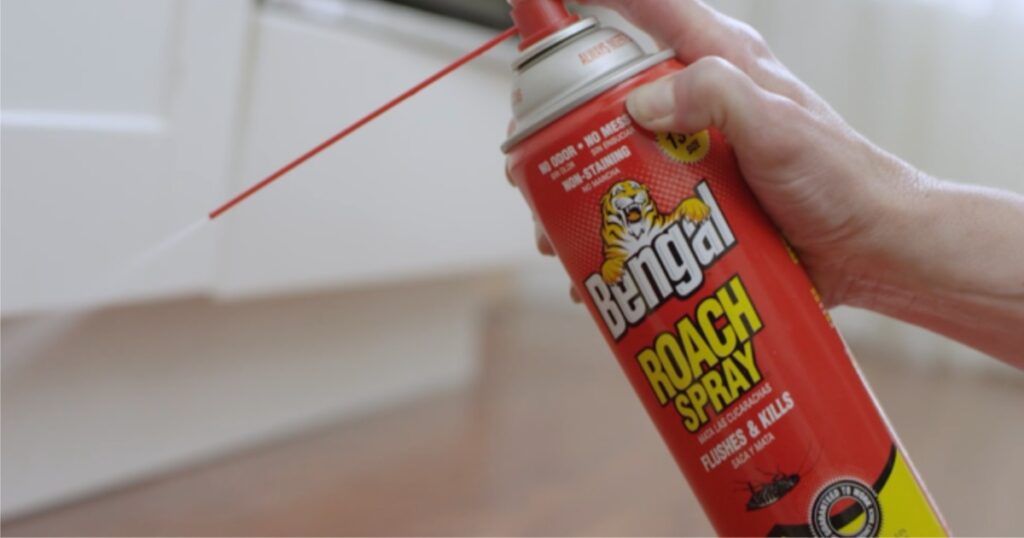
A number of products will aid in getting rid of cockroaches, including Bengal Gold Roach Spray and Vendetta Roach Gel Bait Insecticide, which are available online and in stores. Of course, getting a professional to deal with the roaches is usually the easiest option, but this can be expensive!
Several natural insecticides should also be considered.
Boric acid is a common treatment for roach infestations and is one of the best German roach killers, and is also powerful on other types of cockroaches.
How does boric acid kill roaches? It’s a fast method as it sticks to their wings and feet and, upon ingestion, instantly attacks their digestive system and nervous system, causing death.
Roach bombs or foggers are an option that acts quickly, but they can be dangerous, as they release the chemical into the air. This leaves lingering toxicity in the room, which may be dangerous for vulnerable children or animals.
The best way to prevent infestations of cockroaches is by removing what you can in your home that attracts them in the first place. This involves several steps.
Cockroaches can invade your house through the smallest of cracks and crevices. Once they’re inside, they can pose a threat to your health and your home. And getting back to your question: “Do cockroaches bite?”. Yes, they do but the bites are rare. Although cockroach bites are not common, they can be painful and cause swelling, redness, and itching. In some cases, they can even lead to infections. If you think you’ve been bitten by a cockroach, it’s important to clean the wound and seek medical attention if necessary. To prevent the bites in the first place, it’s important to keep cockroaches out of your home with the help of professionals or by taking measures to keep them away.
